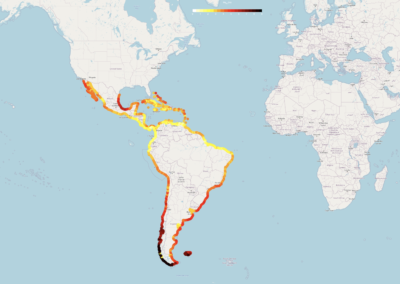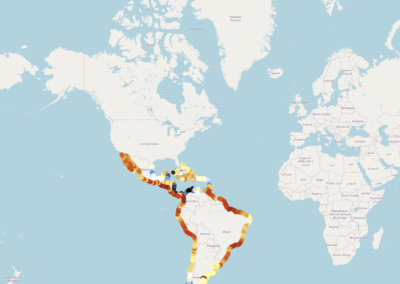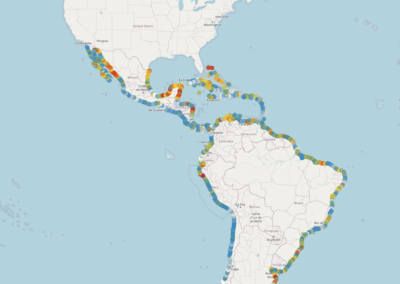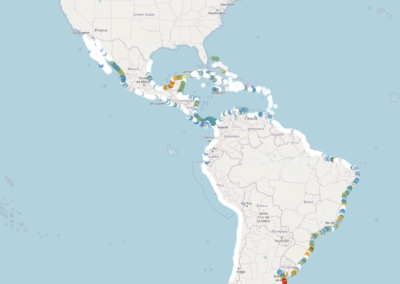C3A
“Incorporating climate change science into socio-economic public policies and adaptation strategies.”


C3A
2010 – 2019
-
Development of data, methodologies and tools to assess the impacts of climate change in coastal areas, and identify adaptation measures based on scientific-technical and socioeconomic information and considering climate variability. The objective is to assess coastal erosion and flood risks, as well as their effects on cities, the tourism sector, infrastructure, etc., in order to propose mitigation and adaptation measures.
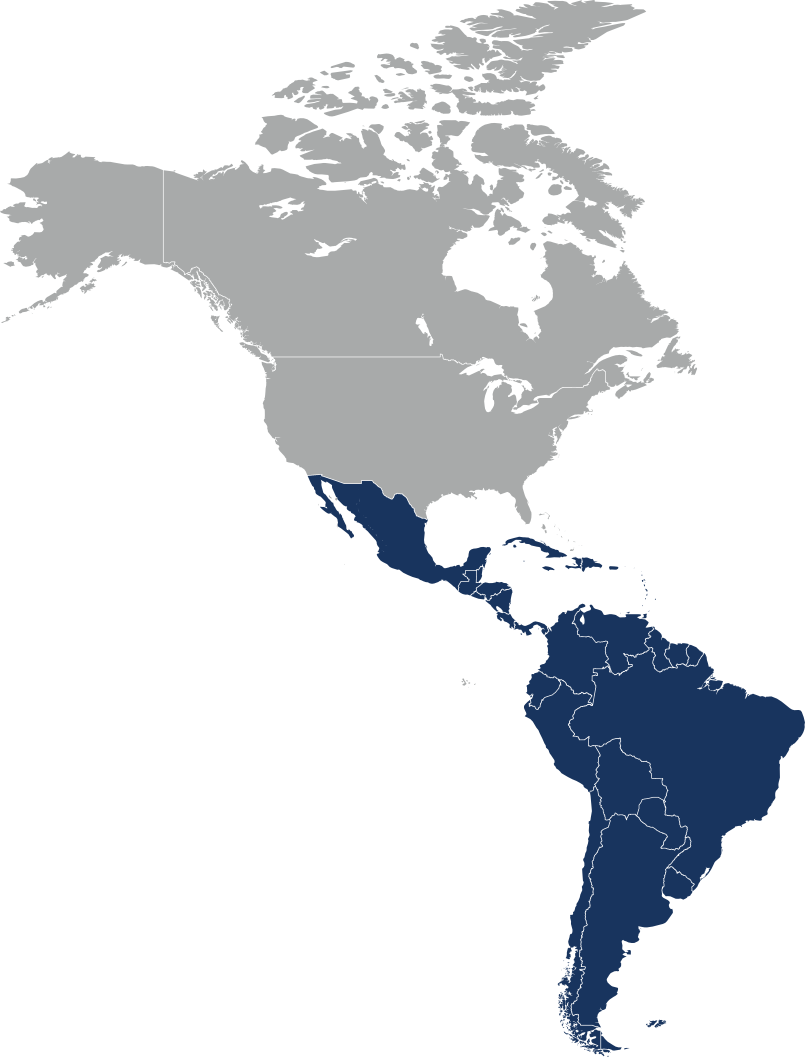

CONTEXT
-
- REGION, COUNTRY: Latin America and the Caribbean
- CLIENT: OECC – Spanish Climate Change Office
- SOURCE OF FINANCING: ECLAC – Economic Commission for Latin America and the Caribbean (United Nations)
- SCOPE: International
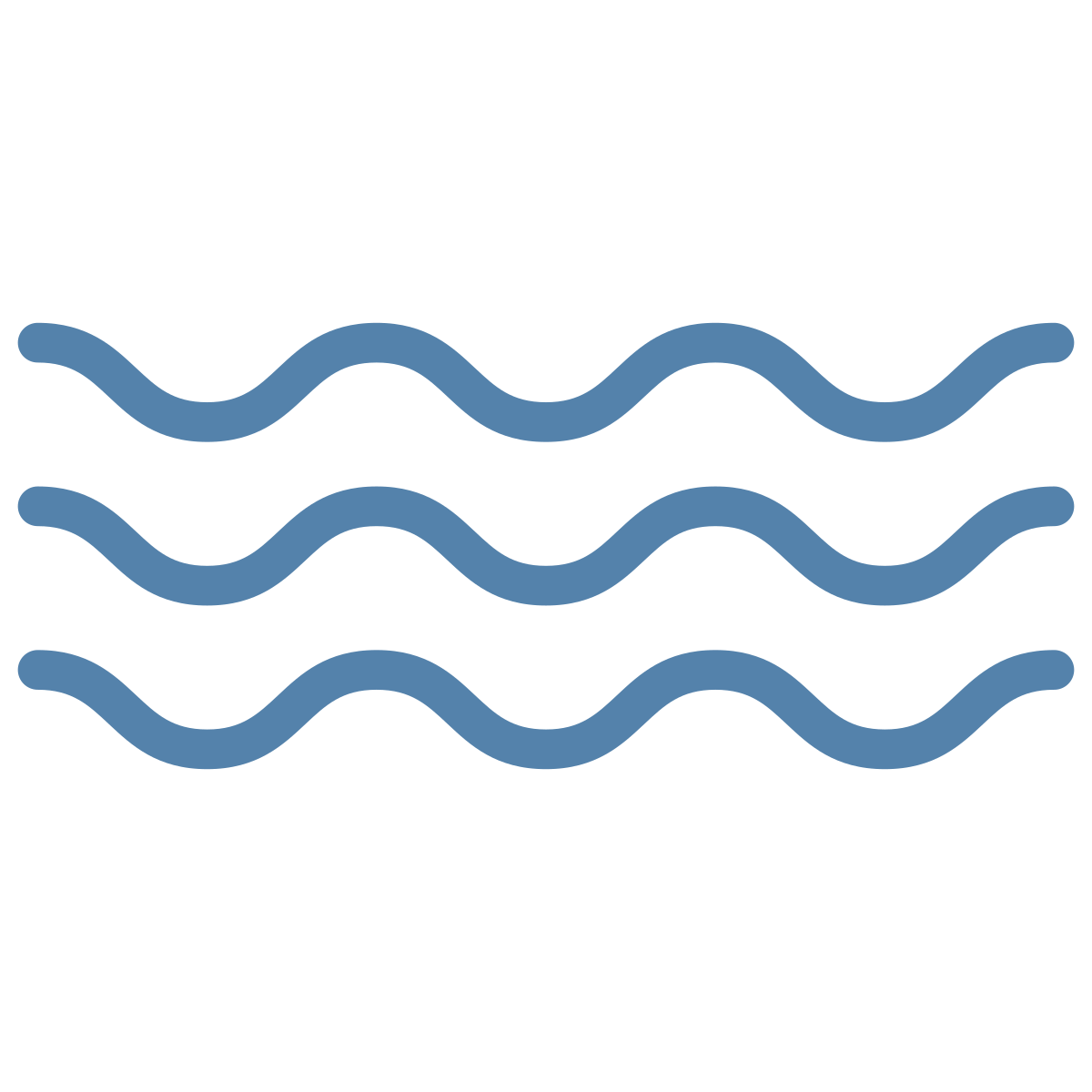
WHAT HAS MADE THIS PROJECT UNIQUE?
-
- Supporting evidence-based decision making and innovation for contribution to the SDGs.
- Design of multidisciplinary, integrated and unique solutions to address the complexity of socio-ecological systems associated with water and ensure their resilience.
- Capacity building and knowledge transfer to new generations of professionals (research and management personnel) to promote the progress of science and society.
- Cooperation, alliances and partnerships for sustainability, as an interface between academic and business, local and global, public and private agents.
- Innovative management model, capable of generating a return for society that triples the public investment it receives and guarantees self-financing of over 70%.

HOW HAS IT ALIGNED WITH OUR MISSION AND VISION?
-
- A collection of world reference studies on the effects of climate change on the coast of Latin America and the Caribbean based on scientific excellence.
- Promotion of knowledge transfer with a multidisciplinary approach that contributes to the achievement of the SDGs in the area of climate change.
- Support for decision-making based on scientific evidence and innovation.

WHAT LESSONS HAVE BEEN LEARNED?
-
- The study shows that climate information is vital for vulnerability analyses of human settlements in coastal areas and integrated coastal zone management, among others.
- The methodology developed for climate risk assessment can be applied to the analysis of other risks due to natural phenomena.
- The technologies and methodologies developed are easily transferable to other regions.

WHAT HAS BEEN THE IMPACT OF THE PROJECT?
-
- Study of approximately 72,182 km of coastline analyzing identified changes in coastal dynamics, the influence of climate variability, various sources of information on coastal vulnerability (physical and socioeconomic environment), the physical layout of the coast, and foreseeable impacts and risks.
- The Regional Study of the Effects of Climate Change on the Coast of Latin America and the Caribbean comprises a total of six publications.
- At a local level and with a higher resolution, we analyzed how sea level rise due to climate change would aggravate flooding on the natural and socioeconomic coastal ecosystems of Santa Catarina, southern region of Brazil.
- For the northwestern region of Cuba, a reconstruction of the effects of climate change on waves, evaluation of ecosystems and methodological aspects were carried out.
- A web viewer of the results was developed for maximum dissemination in the countries of the region.

WHY HAS IT BEEN SUCH A SUCCESS?
-
- ECLAC (United Nations) baseline studies on climate change on the coast of Latin America and the Caribbean.
- High dissemination of results through the web viewer.
- Successful execution of a complex, region-wide project for the entire coast of Latin America and the Caribbean.

CONTEXT
REGION, COUNTRY: Latin America and the Caribbean
CLIENT: OECC – Spanish Climate Change Office
SOURCE OF FINANCING: ECLAC – Economic Commission for Latin America and the Caribbean (United Nations)
SCOPE: International
CLIENT: OECC – Spanish Climate Change Office
SOURCE OF FINANCING: ECLAC – Economic Commission for Latin America and the Caribbean (United Nations)
SCOPE: International

WHAT HAS MADE THIS PROJECT UNIQUE?

HOW HAS IT ALIGNED WITH OUR MISSION AND VISION?

WHAT LESSONS HAVE BEEN LEARNED?

WHAT HAS BEEN THE IMPACT OF THE PROJECT?


